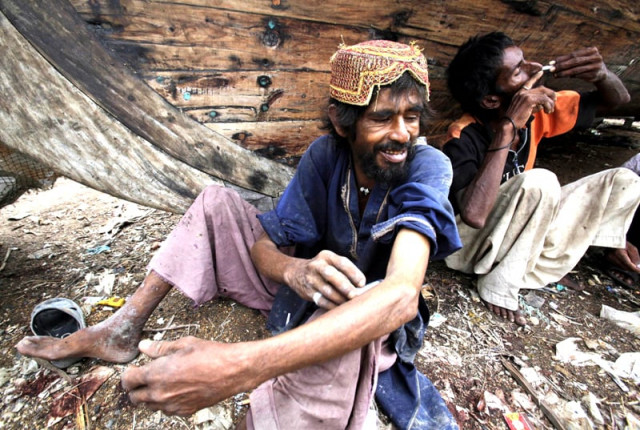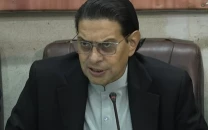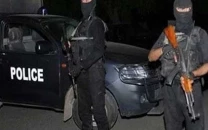Fighting drug trafficking: Dutch govt to help train, equip Balochistan police
Pledges $2.5 million to UNODC’s Law Enforcement and Criminal Justice programme.

To fight trafficking in the world’s largest drug trade corridor, Balochistan, the government of Netherlands has decided to help build capacity of the province’s police force.
The Dutch government has pledged $2.5 million in support of the United Nations Office on Drugs and Crime’s (UNODC) Law Enforcement and Criminal Justice Programme in Balochistan.
An agreement to this effect was signed by Dutch Ambassador Gajus Scheltema and UNODC’s country representative Jeremy Douglas, at the Balochistan House on Thursday. The three-year agreement will be in force until 2015. Balochistan’s police chief Tarik Umar Khitab was also present at the occasion.
Balochistan’s proximity with Afghanistan has created several challenges for the province, said Douglas.
“More than any other place in Pakistan, Balochistan is vulnerable to a number of transactions of crimes including trafficking of drugs, chemicals, arms and explosives as well as human trafficking,” he said.
Under the programme, UNODC will work with the police in Balochistan to improve their internal management, strengthen the institutional capacity for police training, enhance crime scene investigation skills and increase awareness about human trafficking.
The programme also aims to strengthen cooperation between police and prosecutors in the province.
“The idea is that if we improve the capacity of investigators and prosecutors, equip them and improve the knowledge level of low-rank and mid-rank officials, it can make a contribution to better delivery of justice and better security,” Douglas said.
IG Khitab said he was grateful to the UNODC and the Netherlands government for providing them with technical assistance and capacity building. He said he was hopeful the cooperation will help the police tackle the “unique challenges” they face in Balochistan.
Security and development
Speaking to The Express Tribune, Ambassador Scheltema said the Dutch government is moving towards a more trade-oriented relationship with Pakistan but added that problems of security in the region cannot be ignored.
Security and development presents a ‘chicken and egg’ paradox, he said.
“There’s no security without development, but there’s also no development without security,” he said. “So you have to work on both ends.”
“We are supporting the Baloch government in bringing investment to Balochistan and at the same time we are trying to help increase the security and stability in Balochistan,” Scheltema said.
Largest corridor
According to UNODC’s World Drug Report 2012, almost one-third of the drugs produced in Afghanistan are smuggled to the rest of the world through the coastal areas of Balochistan.
Afghanistan, with its 5,800 tons of opium in 2011, is the largest producer of opium in the world and drugs worth an estimated $30 billion are smuggled annually via Pakistan from Afghanistan, primarily through Balochistan, according to the UNODC report.
“The bulk of the drugs are smuggled to the rest of the world including Western Europe, North America and even the Netherlands, where the drugs are worth much more,” Douglas said. “But drug use is also rising in Pakistan.”
Douglas said the drug traffickers that operate in Balochistan often have far better equipment than the police, because the former have a lot of money.
“This package of assistance will go towards improving training of investigators and prosecutors in Balochistan in modern law enforcement techniques including evidence collection, and specialised crimes like human trafficking,” Douglas said.
He said the programme will provide police with forensic training and forensic kits so when they go to a crime scene, they would know how to collect evidence. He said the UNODC will also provide law enforcement with highly specialised equipment to identify suspicious materials such as heroin, explosives and chemicals used to make explosives.
Published in The Express Tribune, November 2nd, 2012.



















COMMENTS
Comments are moderated and generally will be posted if they are on-topic and not abusive.
For more information, please see our Comments FAQ